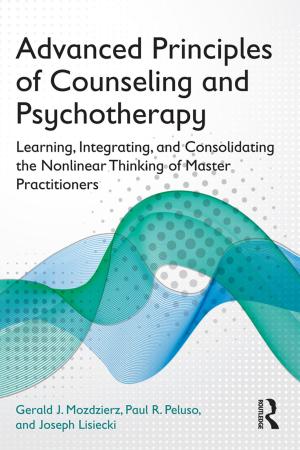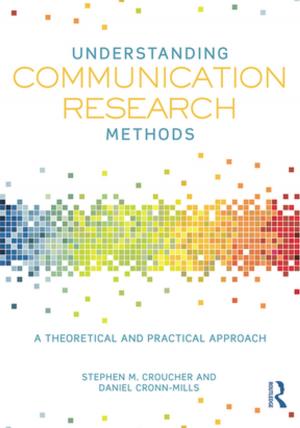Knowing, Not-Knowing and Sort-of-Knowing
Psychoanalysis and the Experience of Uncertainty
Nonfiction, Health & Well Being, Psychology, Mental Health| Author: | Jean Petrucelli | ISBN: | 9780429915451 |
| Publisher: | Taylor and Francis | Publication: | March 21, 2018 |
| Imprint: | Routledge | Language: | English |
| Author: | Jean Petrucelli |
| ISBN: | 9780429915451 |
| Publisher: | Taylor and Francis |
| Publication: | March 21, 2018 |
| Imprint: | Routledge |
| Language: | English |
A contemporary, wide-ranging exploration of one of the most provocative topics currently under psychoanalytic investigation: the relationship of dissociation to varieties of knowing and unknowing. The twenty-eight essays collected here invite readers to reflect upon the ways the mind is structured around and through knowing, not-knowing, and sort-of-knowing or uncertainty. The authors explore the ramifications of being up against the limits of what they can know as through their clinical practice, and theoretical considerations, they simultaneously attempt to open up psychic and physical experience. How, they ask, do we tolerate ambiguity and blind spots as we try to know? And how do we make all of this useful to our patients and ourselves? The authors approach these and similar epistemological questions through an impressively wide variety of clinical dilemmas (e.g., the impact of new technologies upon the analytic dyad) and theoretical specialties (e.g., neurobiology).
A contemporary, wide-ranging exploration of one of the most provocative topics currently under psychoanalytic investigation: the relationship of dissociation to varieties of knowing and unknowing. The twenty-eight essays collected here invite readers to reflect upon the ways the mind is structured around and through knowing, not-knowing, and sort-of-knowing or uncertainty. The authors explore the ramifications of being up against the limits of what they can know as through their clinical practice, and theoretical considerations, they simultaneously attempt to open up psychic and physical experience. How, they ask, do we tolerate ambiguity and blind spots as we try to know? And how do we make all of this useful to our patients and ourselves? The authors approach these and similar epistemological questions through an impressively wide variety of clinical dilemmas (e.g., the impact of new technologies upon the analytic dyad) and theoretical specialties (e.g., neurobiology).















